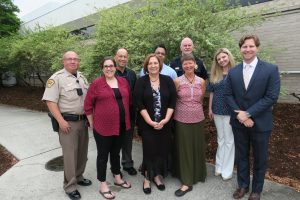 The opioid epidemic facing our country, state, and local neighborhoods is proving to be an extraordinary opponent, but the community stakeholders in New Hanover County and the City of Wilmington are rising to the call and fighting back.
The opioid epidemic facing our country, state, and local neighborhoods is proving to be an extraordinary opponent, but the community stakeholders in New Hanover County and the City of Wilmington are rising to the call and fighting back.
RHA has had the opportunity over the past several months to participate in a multitude of initiatives to combat this health crisis and we are honored to work alongside a host of others dedicated to serving. Projects such as the LEAD project, the Quick Response Team pilot, medication drop off sites, and community forums are designed to make a difference in the lives of those affected by opiate misuse.
Whether it is first responders, city or county officials, educators, or behavioral health providers, everyone comes to the table as an equal partner possessing knowledge, expertise, and compassion with a common goal of making a difference.
Leaders in this effort include professionals and citizens who have looked past artificial boundaries and are banding together around several strategies aimed at creating a healthier, more informed community. SEAHEC is leading the charge with increasing awareness and educating the public through pulling people from all layers of community groups.

This story is all about the team work we have experienced and the solutions we have produced as a group. I personally have been humbled by everyone’s willingness to come to the table asking the question “How can I help? How can I serve?” -Kathy Smith, Ph.D. Chief Operating Officer, RHA Health Services, Behavioral Health
Opioid Task Force
L-R Front Travis Robinson, Molly Daughtry, Deb Vuocolo, Kathy Smith, Olivia Herdon, Tony McEwen; Back Kenny House, Antonio Roper, Mitch Cunningham (Robert Childs not pictured)
